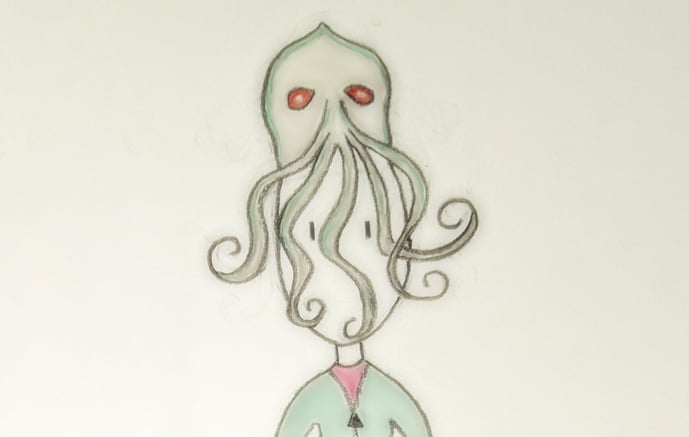Another all-nighter with Mom.
The mental and physical toll of taking care of a loved one with dementia.
K.Lynn Grey
11/7/20243 min read


2 a.m.
A door creaks.
Labored breathing mingles with dragging footsteps into the kitchen.
From the couch I hear the refrigerator open.
I flick on the light. My mother is holding leftover chicken and a Tupperware bowl of mashed potatoes. She turns toward me. “I didn’t have dinner.”
“Yes, you did.”
“No, I didn’t.” Her knuckles turn white as she grips the refrigerator door. “You forgot to make me dinner.”
I hand her a granola bar. She snatches it from my hand, clearly disgusted with me and goes back into her room. I hear her eating in the dark.
The wind picks up. A shower of acorns peppers the front window.
It’s usually the fumbling of a door knob or the shouting that wakes me up. I’ll find her on the front porch, fists raised against the night sky, or arguing with invisible delivery men in the backyard. Other nights she reorganizes the garage, crushing and bending things to fit into boxes that are way too small. Hence my move to the couch to catch her before she gets too far.
In the quiet that follows, I hear the snap of twigs, a rustle outside the door. If I open it, the noises will stop, replaced by a thick silence of something waiting in the dark, wondering how far I will venture out. There are nights when I hear the swoosh of branches outside the window, or a thump on the roof, furtive movements wiggling in my brain. One night, something triggered the motion sensor on the back porch. I stood in the doorway watching shadows stretch and beckon in the wavering light; their twisted shapes worse than the darkness. I walked the length of the house all too aware of a stealthy scrabble of claws above me. Then a soft chittering. Muted silver dollars stared down at me from the roof, reflected off the moonlight. They blinked. I don’t go out there anymore. Tonight, I set my phone on hushed rain with muted piano, guaranteed to help me sleep. Eventually, I do.
6 a.m. Dry feet lumber on tiles, then whisper across carpet. I open my eyes. My mother leans over me, eyes scrunched like a mole. She snorts, then shuffles away, lurching forward slightly, hands flapping in front of her chest. I follow her into kitchen. She opens every drawer and cabinet, then slams them shut, pupils darting back and forth. She’s not using her walker. I make her sit down.
“What are you looking for, Mom?”
Her eyes eventually focus on me. “I can’t find my keys. I need to move my car out of the back.”
“What?” I don’t know what “back,” she’s talking about.
“We were just talking about it.”
“You gave your car to your brother years ago.”
She sways in her seat, clenching and unclenching her hands. “I drive every day.”
“No, you don’t. Remember, we had that talk with your doctor.”
“You always lie, bossing me around. You’re too big for yourself.”
A spike throbs behind my right eye. “I think you were dreaming.”
She pounds her fists on the counter. “I need my keys.”
“I don’t have them.”
She gives me the Nazi salute and lurches back into her room, cursing. She crawls into bed, drawing her blanket around herself with a snap.
I return to the couch, unable to sleep.
8 a.m. Mom comes out fully dressed, wanting breakfast. “Good morning.” She yawns. “I don’t know why I’m so tired,” she says.
The pain behind my eye is a dull roar, chipping away at my skull, a full-blown case of Cthulhu head. “You were up and down all night.”
“No, I wasn’t.”
“Right.”
She peers at me through bifocals, lips set in a prim line. “You look terrible. You’re really letting yourself go.”
I sigh and make her breakfast.
